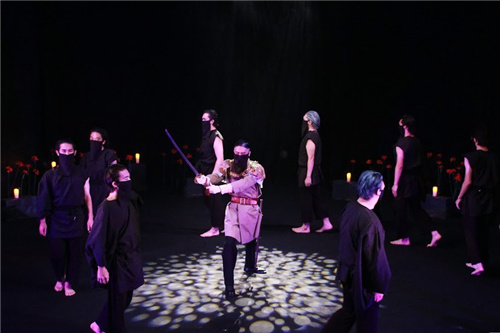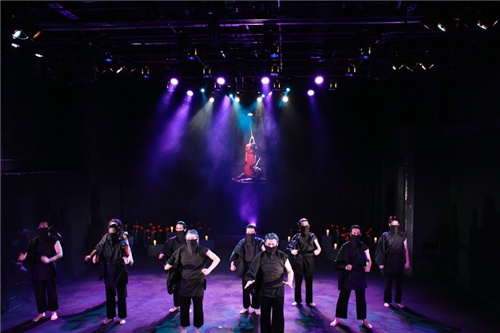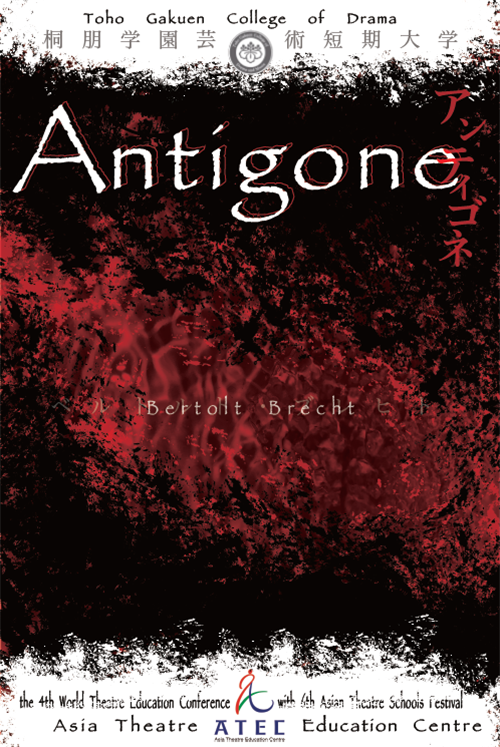
Director: Syoki ABE, Ryota MIYAWAKI
Playwright: Brecht
Institution: TOHO Gakuen College of Drama and Music, Japan
Venue: ATEC Website
Time: 09:30, May 18, 2019
Event: The 4th World Theatre Education Conference with 6th Asian Theatre Schools Festival

Director’s Notes
Antigone is one of the significant ancient Greek tragedies written by Sophocles. I selected an adaptation by Bertolt Brecht, who wrote it after WWⅡ. My direction focuses on misery of wars for creating this work.
Thebes’s king, Creon provokes the war to Argos even though it is far away from his country. Creon’s niece, Oedipus’s daughter, Antigone is sacrificed by his politics because she opposes his laws. Eventually, the war fails also. Antigone’s honest mind and her attitude towards many victims invites the ending of the war.
Brecht finds a modernity in the classics, and he re-creates adaptation as a classic masterpiece. Unfortunately, his works modernity, which some wars occur anyplace in the world, keeps representing a contemporary society even now.
The tale of Heike, which is the masterwork in middle ages of Japanese literature, advocates the preface “The arrogant do not prevail for long, nothing but a spring night’s dream”. This sentence expresses failing their family regime in Japanese poetry. I take it as a motif for representing this performance concept instead of the fallen family of Creon.
Please think when you watch our work, which might represent old Japanese sensitives and emotions.
In addition, I would like to describe what Creon think of the end of the war.

Synopsis
Our college, Toho Gakuen college of Drama and Music plays is one of the famous ancient Greek tragedies, Antigone based on Brecht’s adapted version. The story is almost the same as the original Antigone. The main characters are Antigone; her sister, Ismene; Creon; and his son, Haemon. Before this story, Oedipus’s two sons, who are Antigone’s elder brothers, Eteocles and Polyneices fight for the position of king in Thebes. They die in the battle. Their successor, Creon makes the proclamation that King Eteocles will be buried, but Polyneices because he was leading a foreign army, will be left on the field of battle. Antigone decides to bury Polyneices body anyway even though it disobeys the king’s laws. She highly respects a family and a community’s beliefs more than the king. However, Antigone is caught burying Polyneices and is condemned to death. Her fiancé, Haemon, is told about this and tries to convince Creon to change his mind. It's only then that a prophet Tiresias appears to warn them about their destiny through his obstinate attitude. After a long discussion, he finally persuades Creon that the gods oracularly send a message about Polyneices being buried. By then it's too late -- Antigone has hung herself, Haemon kills himself when he finds her, and Creon's wife also kills herself when she learns about her son.

